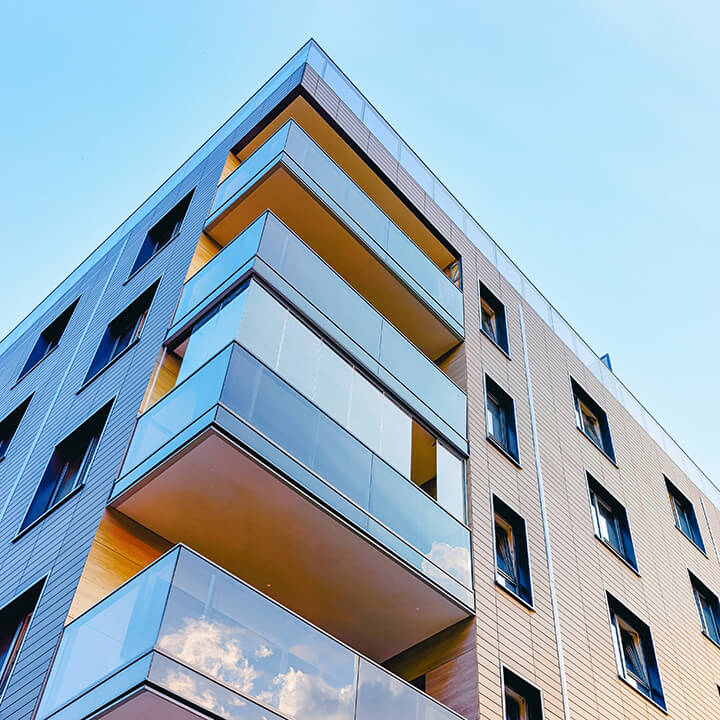Promoting sustainable development: JCT construction contracts
27th September 2022
The inclusion of clauses in commercial contracts which encourage sustainability and positive climate change action is becoming increasingly desirable and commonplace. Funders and Investors are placing greater value than ever before on such concepts, in addition to profitability. In this second in our series of articles considering sustainability clauses, our Construction & Engineering and Infrastructure & Energy experts Carly Thorpe and Adam Bertram consider the JCT suite of contracts.

JCT suite of contracts: promoting sustainable development
The JCT suite of contracts remains one of the most popular standard form construction contracts. There are two key supplemental provisions in the JCT which can be used to encourage sustainability and positive climate change action on a construction project:
Supplemental Provision 8
“8.1 The Contractor is encouraged to suggest economically viable amendments to the Works, which if instructed as a Variation, may result in an improvement in environmental performance in the carrying out of the Works or of the completed Works.
8.2 The Contractor shall provide to the Employer all information that he reasonably requests regarding the environmental impact of the supply and use of materials and goods which the Contractor selects” [1]
This clause intends that the Contractor will seek to improve the environmental performance of the Project during the Construction process. It aims for environmental performance to be a key priority in any design decision.
However, use of the word “encourages” is vague and does not impose an absolute requirement. There is no sanction if the Contractor does not suggest any improvements to environmental performance.
There is also little financial incentive for the Contractor to suggest changes. The Contractor would be paid for extra work, but if sustainability means omitting work or changing to a cheaper option, then the Contractor would receive less money overall (and can charge less overhead and profit).
Supplemental Provision 9
“9.1 The Employer shall monitor and assess the Contractor’s performance by reference to any performance indicators stated or identified in the Contract Documents” [2]
This provision simply allows the Employer to monitor the Contractor’s performance by reference to Performance Indicators. No clarity as to the consequences of failing to meet a Performance Indicator is specified.
It may also be difficult to assess environmental performance until post-practical completion, at which point the Contractor will have been paid the majority of the Contract Sum.
Drafting to maximise practical benefit
If you choose to include these clauses on your project, with a view to encouraging sustainable development as well as practicality and profitability, we would recommend that bespoke amendments be included.
Supplemental Provision 8 could be amended to include a gain share mechanism. The parties could then share any saving to the build costs as a result of a sustainability option being introduced. This would incentivise the Contractor to suggest sustainable changes.
A deadline for sustainable changes could also be introduced to avoid a Contractor suggesting a change at a late stage in the project. This would help control the cost implications of changes.
With regards to Supplemental Provision 9, the parties could agree detailed Performance Indicators relating to sustainability to provide clarity as to how the Contractor’s performance would be monitored and assessed. This could be included in the Employer’s Requirements.
If environmental performance cannot be accurately assessed until after the building has been in operation, a deferred bonus mechanism could be introduced where, for example, an additional payment is made to the Contractor say 6 months post practical completion in the event that performance targets, in particular those relating to sustainability, have been achieved.
How we can help with drafting to promote sustainable development
Walker Morris’ Construction & Engineering and Infrastructure & Energy experts can:
- Provide bespoke drafting to enhance and strengthen the practical impact of JCT Supplemental Provisions 8 and 9.
- Advise on the application and implementation of other sustainability clauses, their benefits, and potential issues to seek to avoid.
Please get in touch with Carly or Adam if you have any queries or would like to know more about encouraging sustainability through construction contracts.
Want to know more?
Sign up to receive further articles in this series.
Read our other updates on promoting sustainable development:
- Promoting sustainable development: NEC, IChemE, FIDIC contracts
- Option X29 NEC4: Promoting and encouraging sustainable development through construction contracts
[1] Supplemental provision 8 in Part 2 of Schedule 2 to the JCT Design and Build Contract, 2016 Edition (DB 2016) and equivalent Subcontract provision at – Supplemental provision 4 in Schedule 8 to the JCT Standard Building Contract, 2016 Edition (SBC 2016).
[2] Supplemental provision 9 in Part 2 of Schedule 2 to the JCT Design and Build Contract, 2016 Edition (DB 2016) and equivalent Subcontract provision at – Supplemental provision 5 in Schedule 8 to the JCT Standard Building Contract, 2016 Edition (SBC 2016).









